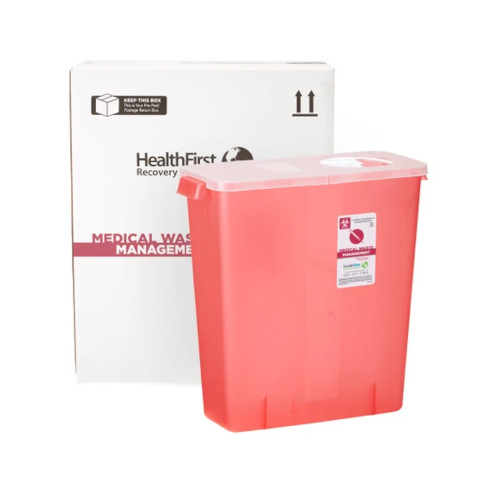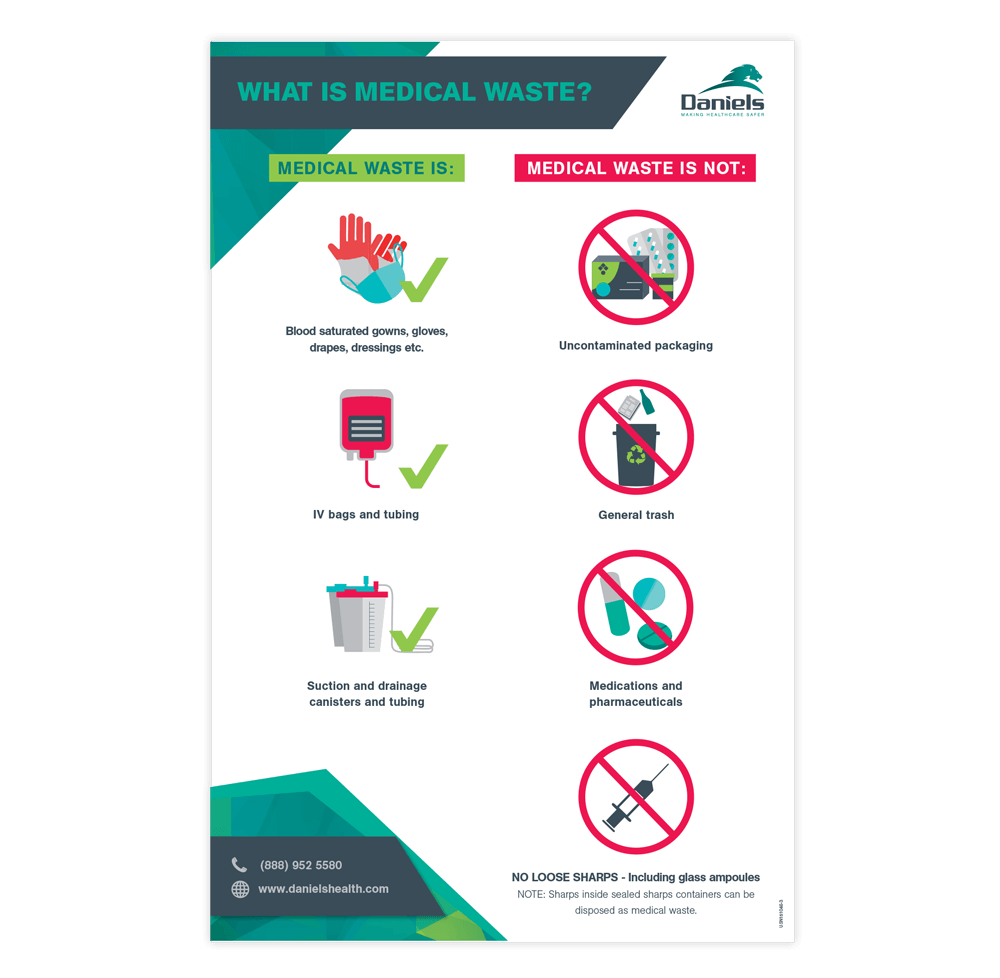Professional Medical Waste Disposal Services: Making Certain Compliance and Safety
Professional Medical Waste Disposal Services: Making Certain Compliance and Safety
Blog Article
Navigating Medical Waste Disposal: Vital Solutions for Medical Care Facilities
In the elaborate landscape of health care procedures, the monitoring of clinical waste is a vital facet that requires careful attention. Healthcare facilities, whether small facilities or large health centers, are turned over with the obligation of handling, dealing with, and taking care of a wide variety of medical waste streams. The complexities associated with browsing via the governing needs, ensuring proper waste segregation, and executing risk-free collection and transport processes are extremely important. Recognizing the essential services that support clinical waste disposal is not just an issue of compliance yet also a basic element in safeguarding public wellness and environmental health. The intricacies of this process are vital for health care facilities, and the knowledge provided in this world plays a crucial role in keeping the stability of medical care systems.
Regulatory Compliance Assistance
For medical care facilities, ensuring governing conformity assistance is vital to maintain appropriate handling and disposal of medical waste. Following regulations established forth by companies such as the Epa (EPA) and the Occupational Safety and Health Administration (OSHA) is important to avoid environmental contamination, shield public health and wellness, and avoid prospective legal effects. Regulative compliance assistance offers healthcare facilities with advice on just how to correctly set apart, shop, transportation, and deal with numerous kinds of medical waste in conformity with neighborhood, state, and federal regulations. This support includes help in producing and carrying out thorough waste monitoring strategies, performing normal personnel training sessions, and doing audits to guarantee continuous compliance. By partnering with regulative compliance experts, healthcare centers can stay up-to-date on progressing regulations, alleviate dangers linked with incorrect waste disposal, and ultimately contribute to a much safer and much more sustainable setting for all.
Waste Segregation Guidance

Medical care facilities must supply clear guidelines and training to personnel on how to segregate waste successfully. This consists of dividing general waste from dangerous products such as sharps, contagious waste, drugs, and chemical waste. Color-coded containers, labels, and signs are commonly used to assist in waste segregation practices. Normal audits and tracking of waste partition procedures are necessary to determine any concerns and make necessary enhancements.
Collection and Transportation Solutions

Appropriate collection and transport solutions are important parts of the clinical waste disposal procedure in health care centers. These services make sure that harmful materials are taken care of securely and in compliance with guidelines to secure both the atmosphere and public health. Health care facilities depend on specialized waste monitoring business to supply efficient collection and transportation services customized to their demands.
Medical waste collection entails segregating various kinds of waste at the factor of generation, using color-coded bags or bins to compare basic, harmful, pharmaceutical, and other waste streams. Trained personnel should execute this task to protect against contamination and ensure correct disposal. As soon as accumulated, the waste is delivered in devoted automobiles check here equipped to manage hazardous products securely. These cars stick to strict safety and security criteria and comply with designated paths to qualified treatment centers for disposal through techniques such as landfilling, incineration, or sanitation.
Treatment and Disposal Solutions
In the world of clinical garbage disposal for medical care facilities, after the vital stage of collection and transport services, the emphasis moves in the direction of carrying out reliable treatment and disposal solutions. Treatment options usually entail procedures such as autoclaving, which utilizes vapor under stress to sterilize the waste. This technique is generally utilized for contagious waste that must be rendered non-hazardous prior to disposal. Another widespread therapy approach is incineration, where waste undergoes high temperatures in regulated setups to lower its quantity and get rid of pathogens.
Disposal see here now options incorporate the final action in the clinical waste administration procedure. Recycling and source recuperation are likewise gaining traction as lasting disposal choices for specific types of medical waste materials.
Reliable therapy and disposal remedies are vital in guaranteeing conformity with regulations and guarding public wellness and the setting. Health care centers should carefully examine and choose proper approaches that align with their waste administration goals and sustainability efforts.
Personnel Training and Education

To efficiently take care of medical waste disposal in health care centers, thorough personnel training and education and learning play an important role in making sure adherence to governing demands and maintaining a safe atmosphere. Correct training gears up team with the expertise and abilities required to deal with various sorts of clinical waste, segregate them correctly, and package them securely for disposal. By enlightening staff members on the risks connected with improper handling of medical waste, facilities can reduce the chance of crashes, contamination, and governing infractions.

Final Thought
Finally, health care centers count on essential medical garbage disposal solutions to make sure governing compliance, appropriate waste partition, risk-free collection and transportation, effective treatment and disposal, as well as personnel training and education. These solutions play a vital duty in preserving the health and safety and security of both medical care workers and the general public, highlighting the value of correct administration of clinical waste in medical care settings.
For health care centers, ensuring regulative conformity support is crucial to preserve appropriate handling and disposal of medical waste. Waste partition involves classifying various types of clinical waste to make sure ideal handling, treatment, and disposal. This consists of dividing basic waste from harmful products such as sharps, transmittable waste, pharmaceuticals, and chemical waste.Clinical waste collection includes segregating various types of waste at the factor of generation, using color-coded bins or bags to identify in between basic, harmful, pharmaceutical, and other waste streams.In the world of medical waste disposal for medical care facilities, after the important stage of collection and transport solutions, the focus changes towards carrying out reliable therapy and disposal remedies.
Report this page